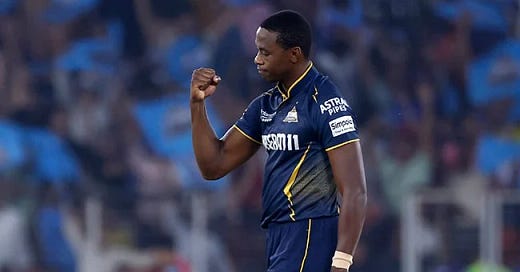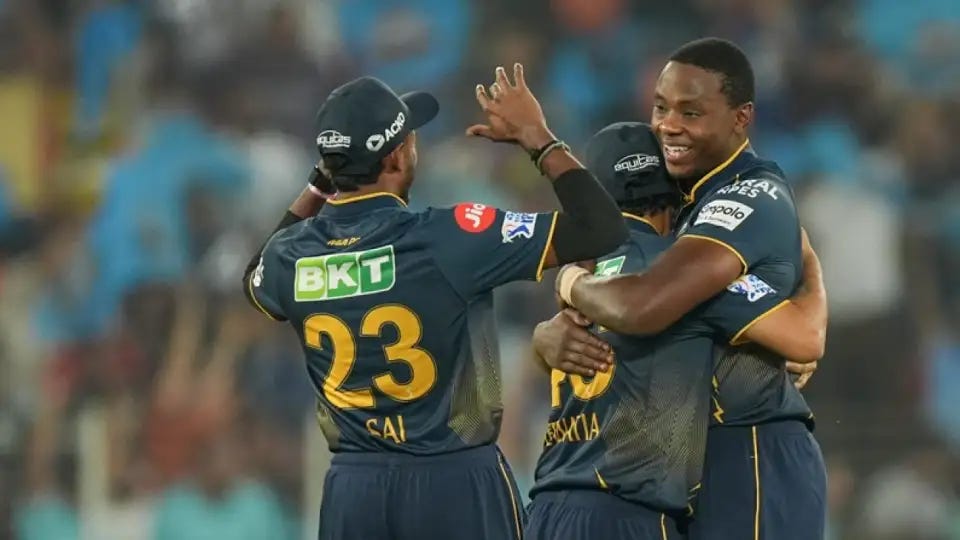Hard-working, successful, high-profile and wealthy sports star takes a banned drug in the privacy of his luxury home overlooking the Atlantic Ocean. Wow. Andre Agassi’s brilliant autobiography chronicles an eight-Major career on cocaine and crystal meth. Did he entertain? Neither condone nor condemn.
Drugs in sport is a legal and medical minefield beyond the comprehension of most of us who have never had to consider the ramifications of anything prescribed to us by a doctor or, indeed, that we choose to use for fun or relaxation.
The World Anti-Doping Agency’s once brutal penalties on guilty athletes have gradually been challenged over the years and, although suspensions for performance enhancing drugs remain extremely strict, even some of them have been successfully mitigated.
The rulings on recreational drug use have been far more seriously challenged, however, and views on their use have changed. For decades there was almost no distinction made between drugs designed to improve athletic performance and those used to get high, or even to climb down from a high.
The softening of penalties for recreational drug use can be traced back as far as 2009 when the French tennis player, Richard Gasquet, tested positive for traces of cocaine. He was facing a lengthy ban and appealed on the basis that he had inadvertently ingested the drug after French(!) kissing a stripper on coke in a nightclub.
The International Tennis Federation opposed his appeal and the case went to the Court for Arbitration in Sport (CAS) who upheld the players’ version of events and ruled that the ban was disproportionate and unfair.
“The panel based its ruling on the evidence provided by the experts called by both the player and the ITF, who agreed that the amount of cocaine metabolite was so minute that it must have reflected incidental exposure, rather than use in the amounts taken by social users.
“Furthermore, it was also established that the player was clearly not a regular cocaine user, even in very small amounts. As a consequence, the possibility of contamination became the most plausible explanation justifying the presence of cocaine metabolite in the player's urine,” a CAS statement said at the time.
The wheels of justice turn slowly but WADA’s constitution regarding recreational drug use was finally amended in 2021 to recognise that elite athletes are also regular human beings living in the ‘real world.’ Although cannabis and cocaine remain firmly on the banned list, along with a host of other ‘social’ drugs, their use does not automatically trigger a lengthy ban. A standard sentence is three months but that can be reduced to only 30 days.
It is a complex and time-consuming process which usually starts with the athlete accepting the evidence of their error immediately. WADA does not look kindly upon apellants who first attempt to deny their indiscretion. The athlete (and their legal team) must then prove beyond doubt that, not only was there no performance enhancement, but that there was no intention to enhance performance. They are also required to attend counselling.
It doesn’t guarantee anything but, if an athlete removes themselves from competition for a month and then clears all the hurdles and jumps through the hoops, there is a chance that their self-imposed suspension from competition can apply retrospectively to the date of the positive test. Indeed, New Zealand all rounder Doug Bracewell served a month ban last year after testing positive for cocaine.
In the UK the Professional Cricketers Association (PCA) treat recreational drug use as a ‘wellness issue’ rather than a disciplinary one and the SA Cricketers Association (SACA) has exactly the same perspective. Both Players Unions have facilitated and paid for counselling and rehab for many players during the decades of their existence.
Kagiso Rabada’s admission at the weekend that he had left the IPL a month ago after playing just two matches for the Gujarat Titans because he had tested positive for a banned substance now makes sense. A 30-day suspension suits everybody concerned. The SA20, during which his positive test occurred, will rightly remain distanced from it.
Cricket South Africa is mightily relieved to have Rabada available for the World Test Championship final against Australia at Lord’s on June 11 and the Gujarat Titans are equally pleased that Rabada will be available for the IPL Play-Offs. Most relieved at the outcome, obviously, will be Rabada.
If it all seems a little too convenient that’s only because news of the positive test was never made public. There is no obligation on anyone to make the results of positive drugs tests public – many are not. It only looks peculiar because of Rabada’s status and profile - and it is certainly a surprise that the news never leaked in his month at home.
The South African Institute for Drug Free Sport (SAIDS) issued a statement confirming the situation yesterday. Rabada has returned to India and is ready to return to the cricket field. In Rabada’s statement he said he would not allow the issue “to define me.” Good for him. It should not. Let he who is perfect cast the first stone etc…
NB - It is exactly a month before I leave for London to report, primarily through this column, on the WTC final. If you feel inclined and can afford £4, a coffee towards the trip would be very greatly appreciated. Alternatively, might you consider a coffee-a-month through a paid subscription? Daily updates before, during and after Lord’s!







I'm sure there'll be snide remarks and mud slinging as we head to the final but it's good to see that it's not being blown out of proportion. Or it might still be... ? Either way, if this happened 10 years ago it would probably be scandalous. I wonder what Hershey_bru thinks.
Good morning Manners,
I still remember reading Agassi's autobiography where he discusses about his struggles with drugs and how it never came out in the "open" while he was playing. Some star players are above public scrutiny. They are let gone without serving any punishment. Only moral opprobium, if any.